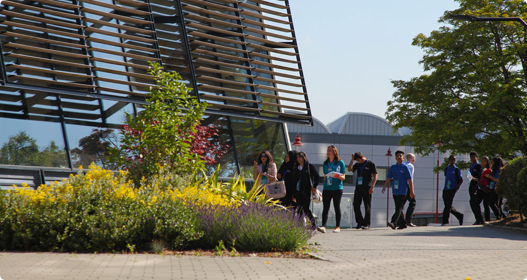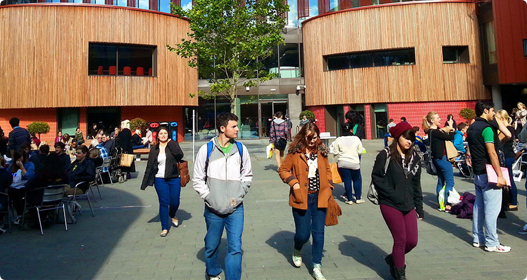Team-Based Learning
The active collaborative learning for student success project ran from March 2017 – February 2019 and has now concluded. This website serves as a historic legacy and is no longer regularly updated.Team-Based Learning – is an active, collaborative learning and teaching strategy which uses a special sequence of individual study, group work, immediate feedback and teacher-facilitated discussion and debate to create a motivational framework for students’ learning.
What is Team-Based Learning?
TBL takes a flipped approach to learning, with students being provided with or directed to learning resources to engage with before formal classes. The incentive to engage with the course content pre-class comes from a readiness assurance process (RAP), which includes a short summative individual readiness assurance test (iRAT) immediately followed by an identical team test (tRAT) to foster discussion, debate, and peer learning. Students and academic staff receive immediate feedback on team performance, allowing a focused class discussion on any troublesome course concepts. The majority of class time is dedicated to application exercises where students learn how to use their new knowledge to solve authentic, real-world problems, make collaborative team decisions, justify their decisions to other teams during discussion and debate, all facilitated by an academic teacher.
Benefits of Team-Based Learning
An analysis of the Team-Based Learning Literature showed early evidence of positive educational outcomes in terms of knowledge acquisition, participation and engagement, and team performance; however, the authors also acknowledged that more research was needed. Koles et al (2010) reported higher scores (+5.9%) in examination results with students who have studied using TBL with students in the lower quartile demonstrating a larger increase (+7.9%). They concluded that TBL may enhance mastery of course content, with students in the lowest quartile benefiting the most. Prior to the project, evaluation of TBL modules at Bradford indicated that whole-cohort assessment outcomes improved when compared to the previous year (results increased by as much as 13%, alongside an increase in students achieving distinctions). Additionally, tutors reported that TBL students required less pastoral support from their personal academic tutors. Although the evaluation focussed on overall attainment, rather than unexplained disparities, a link was established between TBL and a noticeable reduction in the number of students accessing the services of the disabilities office.
Track record of using this approach


"used in over 30 institutions in Europe…"
In 2017, Bradford was starting the fifth year using TBL which has spread beyond initial adopters in Pharmacy to the Faculties of Health and Business. Bradford has developed 3 specialist rooms and employs the first accredited European TBL Consultant-Trainer. Bradford hosted two TBL conferences and has shared practice in TBL module design in the UK and the Netherlands. This has led to TBL being used in over 30 institutions in Europe, including ARU.


"Nº of students involved from 1,169 to 2,478…"
In 2017, ARU was beginning the second year using TBL, increasing its specialist rooms from 3 to 5 and the number of students involved from 1,169 to 2,478. In 2018, TBL will be integrated into the newly-revalidated nursing curriculum, with more than 500 students across 3 campuses. TBL sits within ARU’s wider work on attainment disparities, an area of increased focus since a 2013/14 audit highlighted marked differences for domicile, ethnicity and disability. TBL is an integral part of ARU is focusing on developing inclusive curricula and increasing student retention; a Disability Working Group was formed in 2015/16.
Learn more about TBL at Bradford and Anglia Ruskin
Select one of the resources below to discover more about team-based learning at Bradford and Anglia Ruskin.
